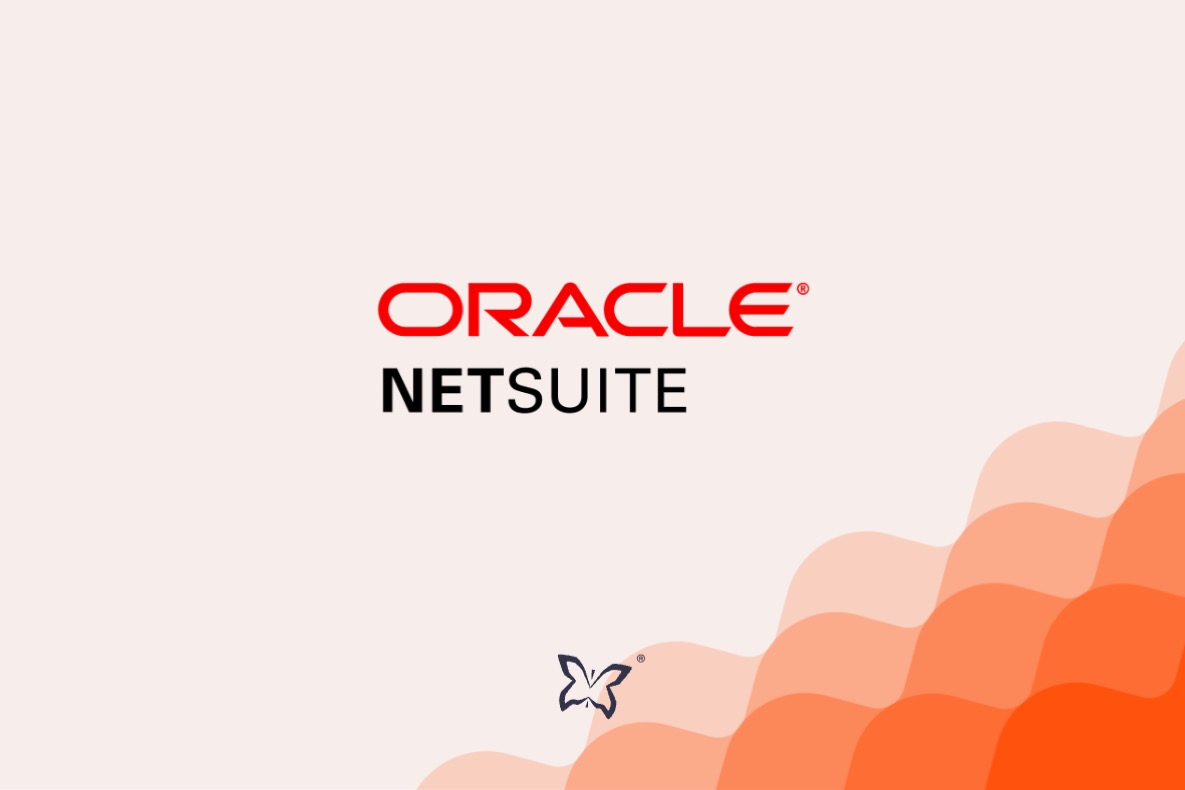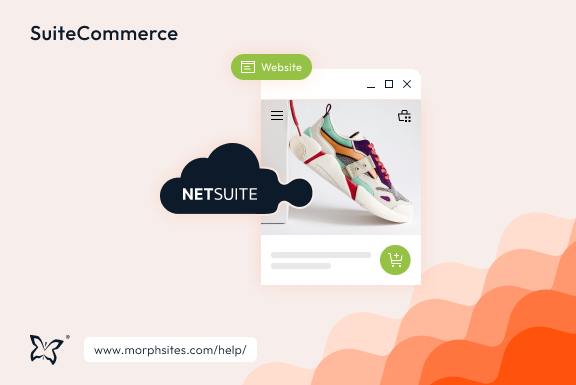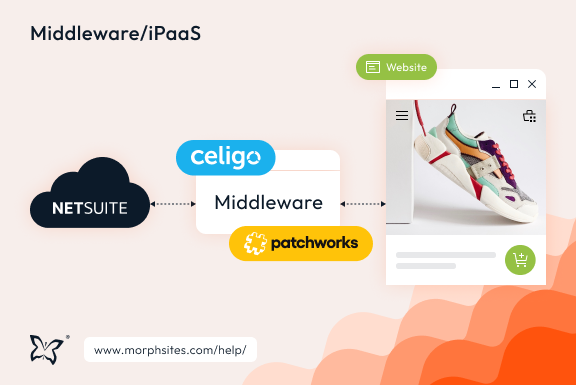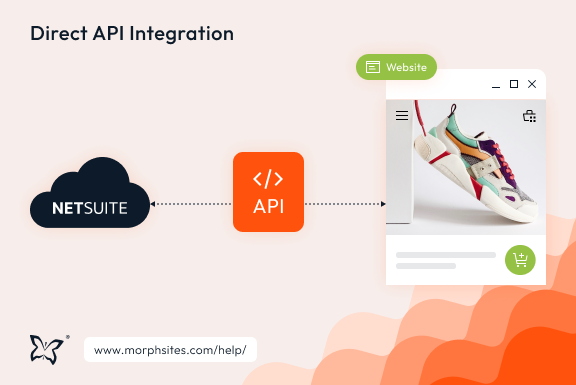We’re taking our meetings online.
We are using a range of online video options so please get in touch to have a chat.

Need expert advice?
Why not give us a call and see how we can help you with your project?
01460 984284We are using a range of online video options so please get in touch to have a chat.

Why not give us a call and see how we can help you with your project?
01460 984284Jargon-free, experience-backed insights to guide your digital decisions.

Pete Fairburn

Over the past few years, we’ve worked with a number of businesses who wanted to integrate their website with the NetSuite ERP system.
If you are a user of NetSuite, you will already know that it is a beast and not for the faint-hearted – or those without deep pockets. It also seems you need a diploma in corporate white paper speak to try and get any sense out of the Oracle website or anything about the platform.
We found the same when it came to integration options for our clients using NetSuite. So here is a no-nonsense guide on your options, in almost plain English.
But before we dive into that, why would you even want to integrate your ERP system with your website in the first place?
Getting your website, whether it is a B2B or B2C ecommerce operation, to talk to an ERP system makes a lot of commercial and operational sense.

Imagine your e-commerce platform and ERP sharing customer pricing, orders, and fulfilment details in real time, automatically and accurately. This all happens according to your agreed business logic, without human intervention.
That represents a serious labour saving, not to mention the reduction in potential errors from reliance on manual processes and in some cases, data entry.
Customer Experience is often improved too, with a more “real-time” experience when it comes to stock, seeing information relating to their account and self-serving on low value, high volume operations, such as making payments on account or requesting a copy invoice.
Regardless of whether you are using NetSuite, Orderwise, Pegasus Opera or any other backoffice system to manage your customers, products and sales, integrating your ERP into your website properly is a no-brainer for most businesses. If done right, it can form the cornerstone of serious digital transformation and efficiency gains within an organisation.
NetSuite has a number of different integration options which may or may not suit your business and user requirements, budget and skill set. It may also depend on your current e-commerce platform.
SuiteCommerce, or SuiteCommerce Advanced, sometimes referred to as "SCA" is an “out of the box” solution provided by NetSuite themselves and it relies on using NetSuite in a very specific and proscribed way.
This means you may be limited in how you use NetSuite if you want it to work with this option.

In addition, the platform is limited in what it offers, which seems lacking in content management, SEO and more advanced e-commerce features from a UX perspective, which could leave you short from a Digital Marketing perspective.
SuiteCommerce Advance offers a number of templates to use as a starting point. We've built systems using SCA, and while it's ok, it can be a struggle for even experienced Front End Developers to create something truly unique and easy to use with the tools the system provides.
Licensing costs are another significant factor, often adding serious wedge to your ongoing cost of ownership for as long as you use the system. This can often dwarf other savings from Options 2 and 3, making ROI harder to achieve in a sensible timescale.
Middleware, sometimes more grandly known as iPaaS, or Integration Platform as a Service, does what it says on the tin (except it doesn't actually come in a tin). It is software that acts as a middleman between NetSuite and your e-commerce platform. Examples of this are Celigo and Patchworks.

These services have some massive benefits over SuiteCommerce - they are broadly platform agnostic, meaning you can use it with whatever platform your website is built on. They are well supported and mature in terms of reliability, which is a big factor if you are a serious Enterprise player (which you almost certainly are if you have paid the licensing and implementation costs for NetSuite, which can rival the GDP of a small country).
However, there can be drawbacks. Most Middleware relies on NetSuite being used in a certain and "standard" way, which defeats part of the infinite flexibility that NetSuite offers. This can mean you have to change your processes or use of NetSuite in order to successfully work with systems like Celigo. This can be no bad thing in some cases, but can also represent a massive upheaval for little return if things are already working well for you.
In addition, much like SuiteCommerce, Middleware attracts licensing costs which can be hefty, depending on your usage. While this can be as little as £600 per year for some systems, this quickly grows with higher transaction numbers and more complex requirements to upwards of £14,000 every year.
Aside from Middleware, NetSuite does have an API you can integrate with directly.
And unlike Middleware, NetSuite's API can access and utilise every call available. This means a direct API integration can be tailored to work around your setup of NetSuite, even if your business doesn't use it in a common way.

This method, therefore, offers maximum flexibility and allows for the greatest scope and adaptability in terms of User Experience, conversion rates and revenue generation.
It also doesn't suffer from the additional licensing costs of SCA and Middleware, which can represent a significant cost saving over the lifetime of the integration.
As businesses move toward more automated and AI-assisted operations, direct integration offers the flexibility to plug in tools that can support forecasting, personalised recommendations, or predictive stock management: something middleware setups might struggle with.
However, it does require a strong working knowledge of how NetSuite is configured and used in your organisation before implementation and the NetSuite API does have rate limits, which means careful consideration needs to be given to how data is exchanged between the website and NetSuite to ensure things stay up to date without hitting rate limits.
All these elements should form part of any technical discovery performed by your in-house team or development partner.
That is the £64,000,000 question.
Each of the three integration options we've covered has its pros and cons, and each comes with potentially ruinous costs, some of which may be hidden from the initial investment figure.
What is the right route for you and your business? That is impossible to answer here. All will rely on knowledge of how you use NetSuite. It is VERY customisable and, by definition, most businesses operate in the way that works for them or how they have been advised to set it up by NetSuite or a consultant/specialist.
So you need access to someone who can help with that, either internally or externally.
Conducting a series of technical discovery workshops is a good way to determine the best integration approach for your business.
Any agency with experience integrating ERP systems will recommend this before ever recommending and offering to implement a solution because the risks - if you get it wrong - can be high. This will be a time-intensive and not inexpensive process.
Failing to plan effectively at this stage will almost certainly lead to disappointing - and costly - results.
The right digital agency (either your existing provider or another acting as a consultancy), will be able to support with both the planning, development and UX considerations for your project to ensure the right outcomes.
We’ve helped businesses like yours figure it out, from consultancy through to implementation.

Commercial Director
Pete is a Co-founder and Director at morphsites. He helps businesses turn complex digital challenges into clear, achievable plans. He’s especially focused on making sure websites and marketing efforts actually support the goals of the business, and don’t just look good on paper.
 The hidden cost of indecision
The hidden cost of indecision
 Finding the extraordinary in the ordinary
Finding the extraordinary in the ordinary
 Before you build, find out if you should
Before you build, find out if you should
 Are you solving the right problem?
Are you solving the right problem?
 More signal, less noise
More signal, less noise
 Do you still need an agency in 2025 or can AI do it all?
Do you still need an agency in 2025 or can AI do it all?
 Is AI changing how we should plan websites and marketing strategies?
Is AI changing how we should plan websites and marketing strategies?
 Planning a Website or Digital Project? Here’s What to Do First.
Planning a Website or Digital Project? Here’s What to Do First.
 Can AI replace your development team?
Can AI replace your development team?
 Why one client spent 10x more on a custom website and never looked back
Why one client spent 10x more on a custom website and never looked back
Not sure where to start with your digital project?
We’ve guided businesses through complex builds, integrations, and marketing strategies. Let’s have a conversation about how we can support your goals.


If you don't think you need to invest some time into keyword planing for your online ads, read this now.

By Pete Fairburn

Find out what’s hindering your business with Discovery – morphsites’ personal client consultation service for businesses who are ready to overcome hidden challenges.

Is it quicker and cheaper to a hire a developer to work directly in your business or use an agency? Deciding whether to go in-house or outsource to a digital agency has many faces – some of which can be tricky to unmask. If you are debating whether to hire an in-house developer, we’ll discuss the whys, the pros, the cons, and the results to help you come to an informed conclusion.

By Pete Fairburn
Need expert advice?
Let’s talk results
© 2025 morphsites Ltd. All rights reserved E&OE. Registered in England no. 07116238. The ‘morphsites’ wordmark and butterfly device are registered trademarks of morphsites Ltd.